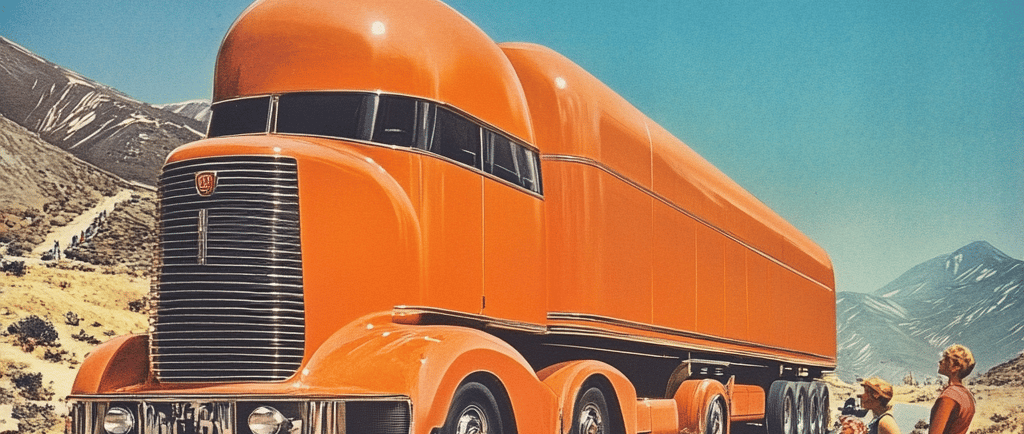Autonomous Trucking Boom
Self-driving trucks displace thousands of human drivers, leading to protests.
TIMELINE


I remember the first time I saw a self-driving truck on the highway. It was surreal, gliding past me like it belonged in a science fiction novel. I couldn't help but feel a mix of awe and trepidation; here was this massive machine, a symbol of cutting-edge technology, operating without a human at the wheel. It sparked a flurry of questions in my mind, and as I drove home that day, I found myself thinking about the many lives this innovation could change—both for the better and the worse.
Why does this fascination tug at my heart? Perhaps it’s because I grew up listening to the stories of truck drivers—their camaraderie during long hauls, the independence of the open road, and the harsh realities faced on the job. I deeply empathize with people who have built their lives and identities around driving trucks. The thought of thousands finding themselves out of work due to automation is profoundly unsettling. Though we talk about progress as a collective advancement, I can't help but feel that it often comes at an individual cost.
The landscape of trucking is changing rapidly. With advancements in AI, these autonomous trucks are no longer a distant dream but a reality that’s quickly taking root. Companies claim they can improve efficiency, lower costs, and eventually create safer roads. But beneath that veneer of technological triumph lies the unsettling truth: behind every self-driving truck are human stories—stories of drivers facing displacement, struggles negotiating life changes, and fears about the future of their livelihoods. What happens to those who have invested years of their lives into this profession? These questions echo in my mind, shining light on the tug-of-war between progress and preservation.
As we stand on the brink of this revolution, I can’t help but speculate about what it means for our society. The loss of jobs isn’t just an economic crisis; it’s an identity crisis for many. What does it mean for small-town communities that depend on trucking for their economy? And what of the ripple effects? With fewer jobs available, will we see a rise in discontent? Perhaps the protests we’ve already started to witness are just the beginning of a larger movement—a call for accountability in this march toward automation. In a world that tends to push for progress without looking back, I often wonder how the people behind the wheel, the ones who’ve built their lives around these trucks, fit into this picture.
As I wrestle with my hopes and concerns, I find myself torn. I dream of a future where technology enhances our lives, making life better for everyone. Yet, every day I question the cost of that dream and whether we’re prepared to support those who fall through the cracks. There’s a haunting uncertainty that lingers—will we rise together, or will some of us be left behind?
In contemplating these issues, I can’t shake the thought: How do we ensure that progress doesn’t come at the expense of humanity? What steps can we take to build a future where technology serves all of us, rather than simply replacing the vulnerable among us?
